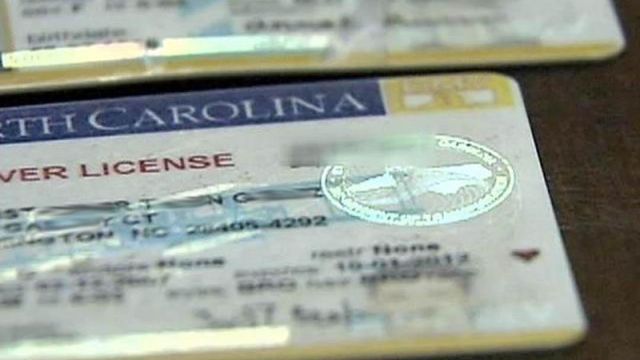Lawsuit pushes drivers license reinstatement for people who can't afford traffic tickets
Tens of thousands of North Carolinians whose driver's licenses were revoked for failure to pay traffic tickets could have a better shot of getting their licenses back—even if they can’t pay the fines. It’s part of a settlement that is expected to end a nearly four-year-old federal lawsuit against the state's Division of Motor Vehicles.
A judge still has to sign off on the settlement. The judge overseeing the case said during a Tuesday hearing in Winston-Salem that he's inclined to do so, according to parties involved in the case.
The settlement's key provision requires the Division of Motor Vehicles to tell people who are about to lose their driver's licenses for failing to pay that they can keep their licenses if they convince a judge that they can't afford the fines. The DMV will also send people a form to fill out and file as a motion with the court in their traffic cases, attesting to their inability to pay.
Drivers have had this right for years under North Carolina law, but the DMV wasn't mentioning it in revocation notices it sent, instead telling people who were about to lose their licenses they needed to "comply" with the traffic ticket to keep their license.
"As a result drivers rarely, if ever, invoke this process," the coalition said in its lawsuit, which was filed in 2018.
As part of the settlement, the DMV would also reach out to people who've had their licenses revoked for nonpayment since 2015 and tell them they can file the stock motion. That's an estimated 150,000 people, according to the proposed settlement.
North Carolina drivers can also have their licenses revoked for driving while intoxicated or failing to appear in traffic court, but this settlement won't affect them; only people revoked for failing to pay fines, fees and court costs.
It's not clear why the changes called for in the settlement took so long to be agreed to. Gov. Roy Cooper's office referred the question back to the N.C. Department of Transportation, which the DMV is part of.
“The governor expects agencies to communicate as clearly as possible with the people and communities they serve," Cooper spokesman Jordan Monaghan said in an email. "I would refer you to NCDOT on the history and specifics of this case.”
The DMV declined comment through a spokesman, saying "it would be premature to comment on the case until the final order has been entered.”
For years advocates have pushed to sever the link between small-dollar fines and driver's license revocation, saying the fines snowball as people who can't afford to pay end up driving on revoked licenses, only to get caught by police and fined again for driving with a revoked license.
A racial equity and law enforcement task force appointed by the governor has also advocated a number of changes in the courts system's reliance on fines and fees, most of which would require successful legislation or policy changes in the state's judicial branch.
The initial complaint in the lawsuit used one of the plaintiffs, Seti Johnson, as a typical example of the problem. Johnson was unemployed when the case was filed in 2018 and faced an indefinite license revocation because he couldn't pay $228, the lawsuit states.
"Mr. Johnson has just obtained a new job, which provides a potential path to upward mobility and to paying off that ticket," the lawsuit says. "Without a driver’s license, he will have to either forgo the job and figure out a different way to get his children to school, daycare and the doctor’s office, or he will have to illegally drive."
Johnson is one of several named plaintiffs in the lawsuit. The case, Johnson v. Jessup, was named after him and after former DMV Commissioner Torre Jessup, who has since moved to the state's Department of Information Technology.
The Southern Poverty Law Center, American Civil Liberties Union, ACLU of North Carolina and the Southern Coalition for Social Justice represented plaintiffs in the case.
The settlement calls for the DMV to give the Southern Poverty Law Center $30,000 to hire someone to build a website to walk people through the process of getting their fines waived. It also calls for the DMV to mail and email notices to individual drivers and to post notices at DMV offices and on its website. The division would also ask the state's judicial branch to post notices in courthouses around North Carolina.












